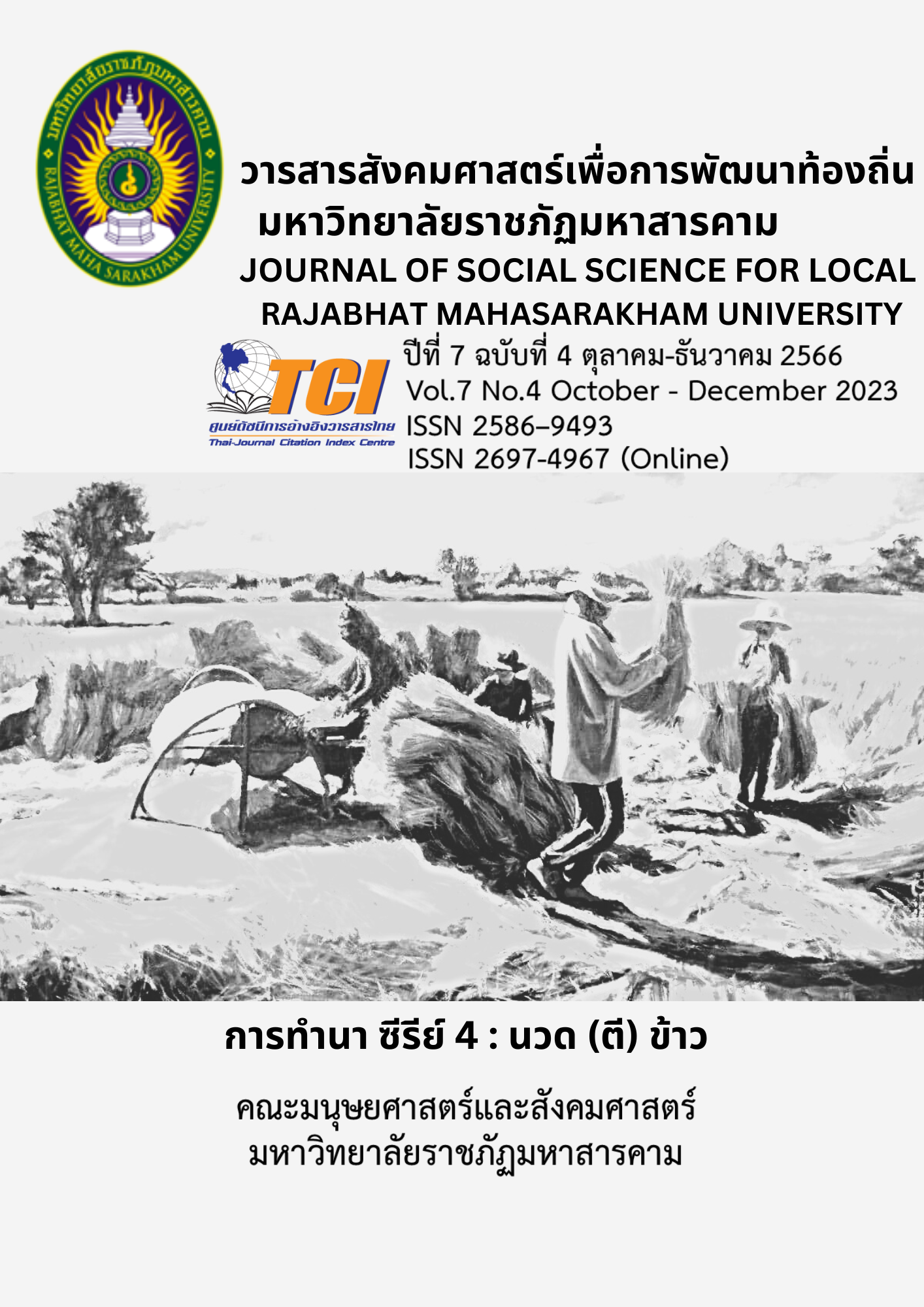Promotion of Lifelong Learning Development Participation Among Non-Formal Education Network in Mueang Pathum Thani District Pathum Thani Province
Keywords:
Participation, Network Partners, Lifelong LearningAbstract
This research consists purposes were 1. the conditions and problems of participation in lifelong learning development of non-formal education network partners in Muang Pathum Thani District, Pathum Thani Province and 2. guidelines for promoting participation in lifelong learning development of non-formal education network partners in Muang Pathum Thani District, Pathum Thani Province. Is a mixed methods the research tools were questionnaires. The sample in this including school administrators, 1) non-formal education network partners, which consisted of 3 sub-groups. The total of 543 persons were drawn according to craigie and morgan's table by using stratified random sampling technique. They included: (1) 234 people from local government organizations/government agencies, (2) 92 teachers, professors and educational personnel in Educational institutions, and (3) 217 people from the group of individuals, community leaders and private agencies. 2) 35 administrators, teachers and educational personnel of Mueang Pathum Thani District Non-Formal Education center who were purposively selected. Data were analyzed by frequency, mean, standard deviation and content analysis. Research results (1) The overall participation in lifelong learning development of non-formal education network partners in Muang Pathum Thani District was at moderate level (x̅= 3.24, S.D.=0.93) and (2) Guidelines for promoting participation in lifelong learning development of non-formal education network partners in Muang Pathum Thani District consists of 4 aspects: (1) For the decision-making aspect, the network partners should be encouraged to participate in work operation decision, raising questions, proposing ideas and suggestions in order to find solutions for problem solving together (2) For the operation aspect, co-ordination and cooperation in planning, activity participating and evaluating from the network partners should be regularly promoted (3) For the aspect of participating benefits, public relations and work presentation to let the network partners realize social benefits should be done and (4) For evaluation aspect, the network partners should be invited to be members of the evaluation committee and evaluation should be operated in every activity.


